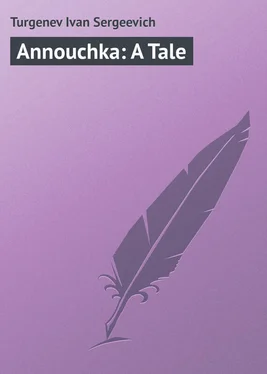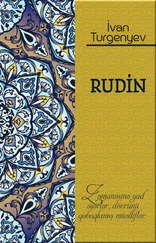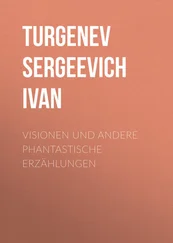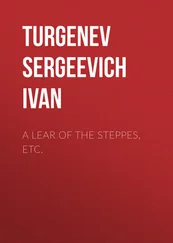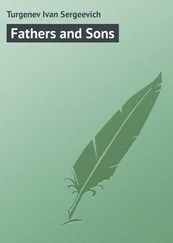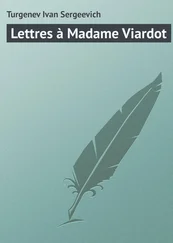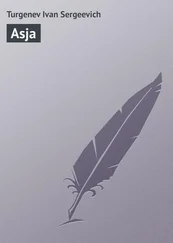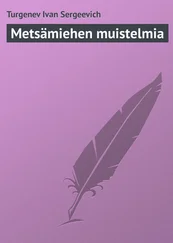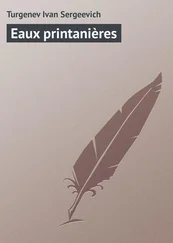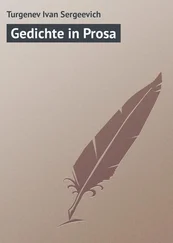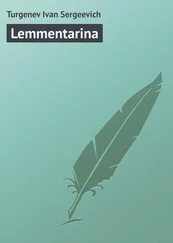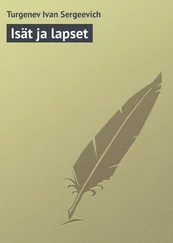Turgenev Ivan - Annouchka - A Tale
Здесь есть возможность читать онлайн «Turgenev Ivan - Annouchka - A Tale» — ознакомительный отрывок электронной книги совершенно бесплатно, а после прочтения отрывка купить полную версию. В некоторых случаях можно слушать аудио, скачать через торрент в формате fb2 и присутствует краткое содержание. Жанр: Русская классическая проза, на английском языке. Описание произведения, (предисловие) а так же отзывы посетителей доступны на портале библиотеки ЛибКат.
- Название:Annouchka: A Tale
- Автор:
- Жанр:
- Год:неизвестен
- ISBN:нет данных
- Рейтинг книги:3 / 5. Голосов: 1
-
Избранное:Добавить в избранное
- Отзывы:
-
Ваша оценка:
- 60
- 1
- 2
- 3
- 4
- 5
Annouchka: A Tale: краткое содержание, описание и аннотация
Предлагаем к чтению аннотацию, описание, краткое содержание или предисловие (зависит от того, что написал сам автор книги «Annouchka: A Tale»). Если вы не нашли необходимую информацию о книге — напишите в комментариях, мы постараемся отыскать её.
Annouchka: A Tale — читать онлайн ознакомительный отрывок
Ниже представлен текст книги, разбитый по страницам. Система сохранения места последней прочитанной страницы, позволяет с удобством читать онлайн бесплатно книгу «Annouchka: A Tale», без необходимости каждый раз заново искать на чём Вы остановились. Поставьте закладку, и сможете в любой момент перейти на страницу, на которой закончили чтение.
Интервал:
Закладка:
"Annouchka, have you not had enough of this?" suddenly said in Russian a man's voice behind me. "Stay a little longer," answered a woman's voice in the same language. I turned quickly, and my looks fell upon a man some young man in a riding-coat and cap; he had on his arm a young girl, very small, whose straw hat almost concealed her features.
"You are a Russian?" I asked of them, with a start which I could not help.
"Yes, we are Russian," answered the young man, smiling.
"I did not expect," I said to him, "in a foreign country to meet" —
"Nor we either," said he, interrupting me. "Allow me," continued he, "to make ourselves known to you; my name is Gaguine, and here is" – he hesitated a moment – "here is my sister. And you, monsieur?"
I in turn told him my name, and we engaged in conversation. I learned that Gaguine was travelling, like myself, for pleasure, and that, having arrived about a week ago at L., he had settled himself there for the time being.
I must confess I do not like to become intimate with Russians in a foreign country. As far as I can see them, I easily recognize their walk, the cut of their clothes, principally the expression of their face. This expression, supercilious and scornful in its nature, at times imperious, suddenly assumes a cautious and even a timid air. They appear seized with a kind of restlessness; their eyes disclose a strange anxiety: "Seigneur! have I not said something foolish; are they laughing at me by chance?" their look seems to ask. Then one sees them again assume their majestic calmness, until a new feeling of uneasiness comes to trouble them. Yes, I say it again, I avoid all intercourse with my fellow-countrymen; nevertheless, at first sight, I felt attracted towards Gaguine. There are in the world such happy faces that one takes pleasure in looking at them, they reflect a warmth which attracts and does one good, as if one had received a caress. Such was Gaguine's, with large eyes as soft as the curls of his hair, and a voice whose sound made you divine that he had a smile upon his lips.
The young girl whom he called his sister at first sight appeared to me charming. There was an expression quite peculiar, piquant and pretty at times, upon her round and slightly brown face; her nose was small and slender, her cheeks chubby as a child's, her eyes black and clear. Though well proportioned, her figure had not yet entirely developed. Withal there was no resemblance to her brother.
"Will you come home with us?" said Gaguine to me. "It seems to me that we have looked long enough at these Germans. Russians by this time would have broken up the glasses and chairs; but these young fellows before us are too reserved. Come, Annouchka, is it not time to return home?"
The young girl assented by a nod of the head.
"We live out of town," added Gaguine, "in a small isolated house upon a hill, surrounded by vines. You shall see whether it is pretty! Come, our landlady has promised to make us some cheese-rennet. Besides the day is on the wane, and you will cross the Rhine more securely by moonlight."
We proceeded. A few moments after we passed through the low gate of the town, which was surrounded by an old stone wall that still preserved some battlements. We advanced into the country; after going along by the side of an old wall a hundred paces, we stopped before a little door; Gaguine opened it and made us ascend a steep path, upon the sides of which were rows of vines.
The sun was just setting; a faint purple hue tinged the vines, the props that sustained them, the parched earth covered with pieces of slate, as well as the white walls of a little house, all the bright windows of which were framed in black bars, and towards which the footpath that we were climbing guided us.
"Here is our stopping-place!" cried Gaguine, when were a little way from the house, "and there's our landlady, too, bringing us some milk. Guten abend , madam," cried he. "We are going to have our frugal repast at once; but first," said he, "look about you and tell me what you think of the view."
The site that he showed me was, indeed, admirable. At our feet the silvery waters of the Rhine, illumined by the purple of the setting sun, flowed between the verdant banks. The town, peacefully placed on the river banks, displayed to our eyes all its houses and all its streets; the hills and fields stretched out about it.
If that which was at our feet was beautiful, more lovely still was the sight above our heads. One was struck by the depth and clearness of the heavens, the transparency and brilliancy of the atmosphere. Clear and light, the undulations of the breeze moved softly about us; that also seemed to take delight in the heights.
"You have chosen an admirable place to live in," I said to Gaguine.
"It is Annouchka who found it out," he replied to me. "Come, Annouchka, give your orders. Have them bring everything here; we will sup in the open air, that we may hear the music better. Have you noticed," added he, turning to me, "that such music as a waltz near at hand seems detestable; heard at a distance, charms and makes all the poetic chords of your heart vibrate."
Annouchka directed her steps towards the house, and soon returned accompanied by the landlady. They brought an enormous dish of milk, spoons, plates, sugar, fruits, and bread. We seated ourselves and began to eat. Annouchka took off her hat; her black hair, cut short, fell in large curls over her ears and her neck. My presence appeared to embarrass her; but Gaguine said to her, "don't be shy; he will not bite you."
These words made her smile, and a few moments after she spoke to me without the least embarrassment. She did not remain quiet a moment. Hardly was she seated than she arose, ran towards the house, and reappeared again, singing in a low voice; often she laughed, and her laugh had something strange about it – one would say that it was not provoked by anything that was said, but by some thoughts that were passing through her mind. Her large eyes looked one in the face openly, with boldness, but at times she half closed her eyelids, and her looks became suddenly deep and caressing.
We chatted for about two hours. It was some time since the sun had gone down, and the evening light, at first resplendent with fire, then calm and red, later on confused and dim, mingled little by little with the shades of night. Yet our conversation still went on. Gaguine had a bottle of Rhine wine brought; we drank it slowly. The music had not stopped, but the sounds that the wind brought us seemed sweeter. In the town and upon the river lights began to spring up. Annouchka suddenly lowered her head, her curly hair fell over her brow, then she became silent and sighed. In a few moments she told us that she was sleepy and went into the house. I followed her with my eyes, and saw her sitting a long time motionless in the shadow behind the closed window. At last the moon appeared on the horizon, and its rays made the waters of the Rhine scintillate softly. Everything before us suddenly changed; brightness, then darkness, sprang up in every direction, and the wine, even in our glasses, assumed a mysterious appearance. There was no longer any wind; it ceased suddenly, like a bird that folds its wings; a delicate and warm perfume arose from the ground.
"It is time to go!" I exclaimed, "otherwise I shall not find a boatman."
"Yes, it is time," replied Gaguine. We took the path that came down the mountain. Suddenly we heard some pebbles rolling behind us; it was Annouchka, who was coming to rejoin us.
"You did not go to bed then?" said her brother.
She did not reply, but ran down before us. Some of the lamps that the students had to light up the garden still threw a dying glimmer, which lighted up the foliage of the trees, at the foot of which they burnt, and gave to them a solemn and fantastic appearance. We found Annouchka upon the bank; she was talking with the boatman. I jumped into the boat and took leave of my new friends. Gaguine promised me a visit the next day. I gave him my hand, which he pressed; I offered the other to Annouchka, but she contented herself by looking at me and nodding her head. The boat was set loose from the bank, and the current carried it along with rapidity. The boatman, a robust old man, plunged his oars energetically into the dark waters of the river.
Читать дальшеИнтервал:
Закладка:
Похожие книги на «Annouchka: A Tale»
Представляем Вашему вниманию похожие книги на «Annouchka: A Tale» списком для выбора. Мы отобрали схожую по названию и смыслу литературу в надежде предоставить читателям больше вариантов отыскать новые, интересные, ещё непрочитанные произведения.
Обсуждение, отзывы о книге «Annouchka: A Tale» и просто собственные мнения читателей. Оставьте ваши комментарии, напишите, что Вы думаете о произведении, его смысле или главных героях. Укажите что конкретно понравилось, а что нет, и почему Вы так считаете.
